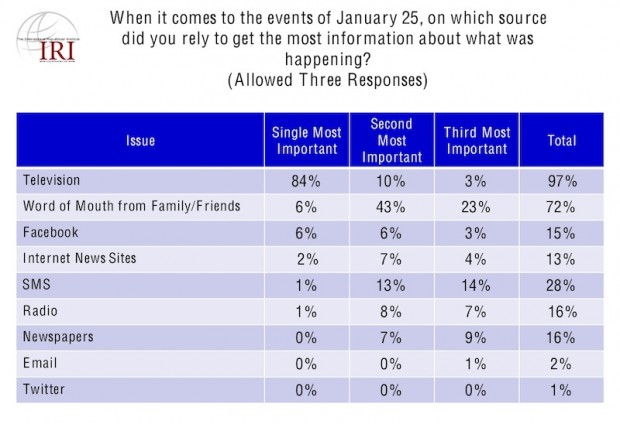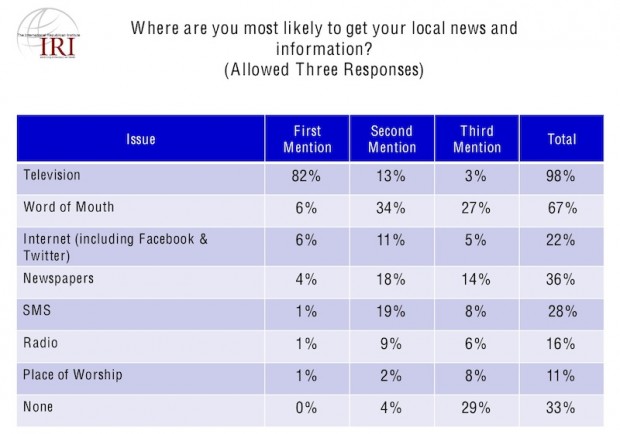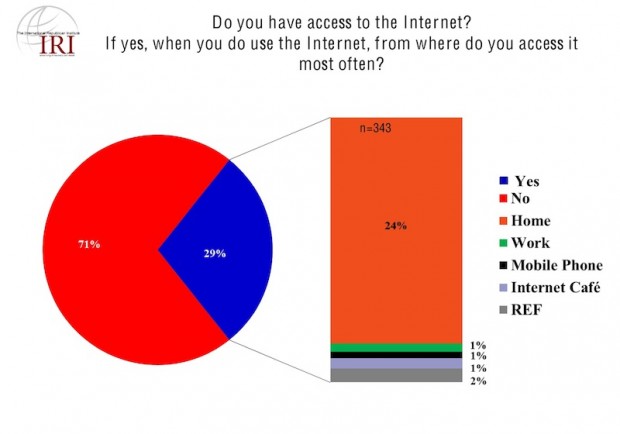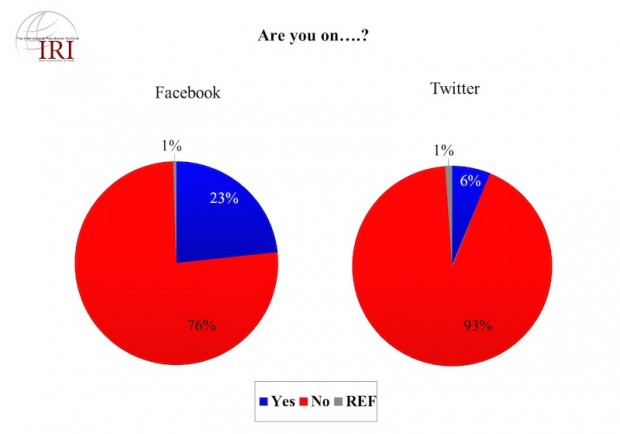An iconographic and text archive related to communication, technology and art.
These responses would seem to dispel one of the myths that have sprung up around the events of January 25. Although the role of Facebook, Twitter and SMS are widely discussed, Egyptians overwhelmingly seem to have relied on television for information. And, as their second choice and third choice, most people relied on talking to their friends and family.
☛ The International Republican Institute: “Egyptian Public Opinion Survey”, June 5, 2011, p. 4
I can’t remember any headlines from the last months that read “The Television Revolution”. The complete results from the IRI survey are quite interesting. They can be downloaded online as PDF documents in two parts: a set of data (PDF) along with an analysis (PDF). The excerpt quoted above is from the analysis.
1200 Egyptians were interviewed, half were male, half female. 34% of those were aged between 18 and 24 years old. 32% attended secondary school, 26% attended a university. 57% came from rural regions while 40% declared a monthly household income between 1001 and 5000 LE (livre égyptienne or Egyptian Pound, roughly between 168US$ and 841US$ with today conversion rate). 72% said they did not participate in the protests during the revolution. 71% of the 1200 respondent said they didn’t have access to the Internet. Television was the first source of information for 84% of the respondent when it comes to the events of January 25. The second-most relied upon source of information was word of mouth.
This is consistent with findings from the diffusion research traditions. See for example “Diffusion of News of the Kennedy Assassination” by Bradley S. Greenberg, Public Opinion Quarterly, vol. 28, no 2, pp. 225-232, Summer 1964 (stable URL, PDF).
[UPDATE – June 11, 2011] The opening quote from the IRI’s analysis should be taken cautiously (as should any analysis based on partial survey). The fact are the following: 1) 84% of 1200 Egyptians declared to have used television as their primary source of information about the events of January 25, 2011. It doesn’t mean in any way that social media played no role at all during the civilian uprisings in the Middle East. The IRI’s analysis takes a shortcut when they qualify all the discussion about Facebook and Twitter in relation with those insurrections a “myth”. There’s no doubt (in my mind) that some journalists as well as analysts were overly enthusiasts when it comes to the role played by the so-called “social media” during this period. However, those exaggerated claims should not be used as the ground for overly pessimist views on the same subject. For a similar argument previously presented here see: Malcolm Gladwell, media and revolution.
Below are four charts from IRI’s Egyptian survey:




Previously on Aphelis: Egypt and Internet: some caution (January 31, 2011)
- By Philippe Theophanidis
- on
- ― Published in Communication, Technology
- Tagged: diffusion, Facebook, Insurrection, media, protest, révolution, television, Twitter
